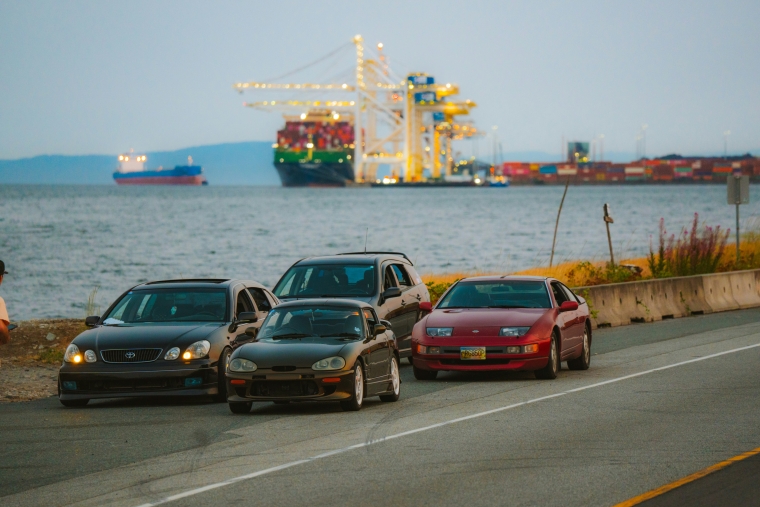
Transport Minister Chris Bishop says he is aware the number of used vehicle imports continues to fall and is taking advice on the Clean Car Standard "and whether it is working as intended."
Bishop's comments come in response to a call by the Imported Motor Vehicle Industry Association (VIA) for a review of the Clean Car Standard (CCS).
The association says used light vehicle imports are projected to be 87,000 in 2025, down 20% on 2020, and prices have risen 30%.
The association wants the Government to further relax the Clean Car Standard (CCS) introduced by the Labour-led government in November 2022.
Bishop says the decline in imports began in 2017 and has been influenced by several factors, including the current economic climate and consumer demand.
External factors were also playing a part – in particular, higher vehicle prices at Japanese vehicle auctions, where 98% of used imports are sourced.
Demand for used vehicles has risen in the United Arab Emirates, Russia and Mongolia, while Sri Lanka recently lifted a ban, Bishop says.
Japanese consumers have also been holding on to their vehicles for longer, and Japanese carmakers had reduced domestic production.
The Clean Car Standard, according to NZTA, aims to encourage a greater supply of low- and no-emission vehicle imports by charging importers for vehicles with high CO2 emissions and giving credits for vehicles with low CO2 emissions.
Watered down
The Government "watered down" the emissions standards in July last year to match those of Australia.
VIA CEO Greig Epps says despite this, import volumes remain depressed from the 110,000-vehicle average for the 10 years preceding the CCS.
Epps acknowledged some of this was due to non-regulatory factors such as exchange rates and the slowdown in Japanese car production.
“Japanese domestic production has slowed, and EV output is lower than expected. That’s outside our control,” says Epps.
“But the Clean Car Standard is a local policy lever, and it’s making it harder for dealers to supply vehicles that New Zealanders can afford.”
Epps said family vehicles favoured by low- and middle-income buyers, such as the Toyota Noah, were now "effectively unsellable" because of the penalties they attract under CCS.
To date the CCS has already booked $395 million in charges, Epps says, and the regulations specify further emissions reductions in 2026 and 2027.
Allowable carbon emissions are currently 112.6 grams per kilometre and are set to fall to 108g/k next year and 103g/k in 2027.
Made in Europe
Epps says the CCS policy "was built for the new car industry and came from European countries with car production industries and neighbours they can shunt their old vehicles on to."
One effect of the CCS was to restrict the pool of low-emission vehicles that meets CCS thresholds, attracting low or no penalties.
"Japan, our main source of used vehicles for New Zealand, has had low EV uptake domestically and produced just 60,000 EVs last year (down 30% from 2023)," Epps says.
The VIA wants "a more realistic, long-term plan that supports more hybrid uptake while working within the realities of New Zealand’s unique market, one without local vehicle manufacturing or a neighbouring second-tier export economy for used stock."
New vehicles sold
Select chart tabs
3 Comments
But perhaps the numbers of imports are falling because we simply don’t need them. NZ has the highest number of cars per capita in the world (ignoring tiny principalities). We’re already saturated. https://en.wikipedia.org/wiki/List_of_countries_and_territories_by_moto….
And if we are going to import other people’s cast-offs let’s at least make sure we only bring in cleaner stuff that might be worth having and not be influenced by self-interested importers wanting to make money by filling the country with junk
It might also be a reflection of our poor planning, low-density cities, and bleeding awful public transport coupled to expectations of social participation and a desire for a first-world living standard.
People will visit NZ in 2030 and report back: 'Ew, why do they still do all this dirty living? You can't swim in the rivers, trust the tapwater, or breath the air in the cities... and they charge you to take a walk in the country! All the cars are cast offs from countries that have moved on. Joke of a place'.

We welcome your comments below. If you are not already registered, please register to comment
Remember we welcome robust, respectful and insightful debate. We don't welcome abusive or defamatory comments and will de-register those repeatedly making such comments. Our current comment policy is here.